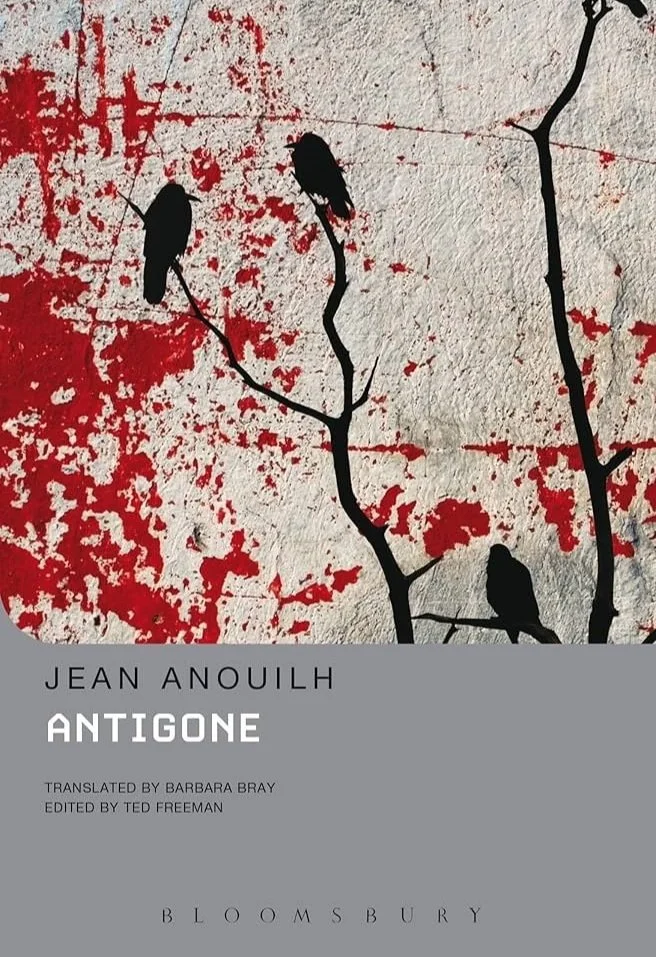Reader’s Corner: Antigone by Jean Anouilh
Every kind of stillness. The hush when the executioner’s ax goes up at the end of the last act. The unbreathable silence when, at the beginning of the play, the two lovers, their hearts bared, their bodies naked, stand for the first time face to face in the darkened room, afraid to stir. The silence inside you when the roaring crowd acclaims the winner—so that you think of a film without a sound track, mouths agape and no sound coming out of them, a clamor that is not more than picture; and you, the victor, already vanquished, alone in the desert of your silence. That is tragedy.
― Jean Anouilh, Antigone
A vivid portrait of love, loyalty, and sacrifice, Jean Anouilh takes the classical tale of Antigone, a young woman who defies the king’s decree to bury her brother, and remoulds it with the raw tension between the deep, sacrosanct love of family and social rule, framed within the fated tragedy of the ancient world. Each moment steeped in emotional extremes, yet forceful in its lethargy, the play extracts each philosophical implication from an inescapable web of fate.
Antigone’s love for her brother Polynices, whom she believes must be given a proper burial despite the king’s decree, becomes a noble rebellion against the cruel constraints of power and mortality in her eyes. It is a pure, unwavering love that cannot be compromised, nor reasoned with. The fraught conflict is further conferred upon Prince Haemon, the young lover caught between loyalty to his father and his passion for Antigone. The couple’s love is all-consuming, yet is also fraught with tragic inevitability. A symbol of youthful defiance against the forces that seek to control them, this love nonetheless finally falters and succumbs to the same morbid fate that has met each other character.
Subtle yet forceful, Anouilh’s Antigone is a meditation on the price of integrity in an imperfect world, the human heart’s yearning for justice, and the coldness of the systems that govern us. At its heart, the play is a meditation on love’s power over those who dare to live by it.
